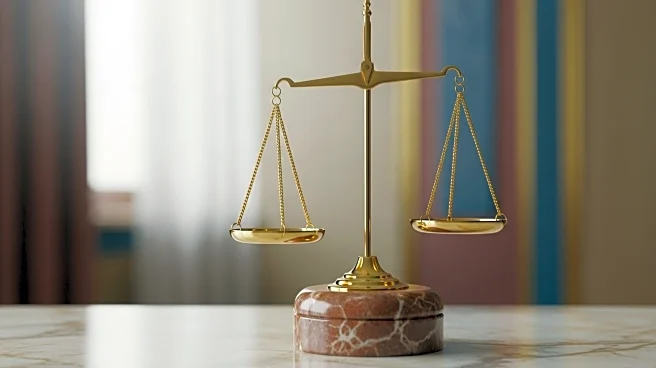What is the story about?
What's Happening?
President Trump is attempting to remove Federal Reserve Governor Lisa Cook, a move that could significantly alter the traditionally apolitical nature of the Federal Reserve. Since taking office, Trump has criticized the central bank for not lowering interest rates and has threatened to remove Chair Jerome Powell. Trump's actions are seen as an effort to reform the Federal Reserve, which he blames for inflation following the Covid pandemic. He views lower interest rates as a means to manage federal debt and boost the housing market. However, legal scholars and financial experts warn that these moves could undermine the independence of the Federal Reserve, which is crucial for maintaining the credibility of the U.S. financial system.
Why It's Important?
The independence of the Federal Reserve is vital for making monetary policy decisions that are best for the U.S. economy, even if they are unpopular. Trump's actions could lead to a politicization of the Federal Reserve, potentially eroding its credibility and independence. This could have long-term negative effects on the economy, similar to hyperinflation seen in countries where monetary policy is dictated by political leaders. The Federal Reserve's role in regulating banks and ensuring the stability of the Treasury system and the dollar is at stake. If Trump succeeds in influencing the board, it could lead to significant changes in how monetary policy is set in the U.S.
What's Next?
Trump's administration argues for a reevaluation of the Federal Reserve's role, suggesting that it has overstepped its mandate by addressing issues like climate change and diversity. Some Wall Street figures support the idea of reforming the Fed, including introducing external members to its policymaking group to reduce groupthink. However, critics argue that Trump's approach threatens to undo decades of Federal Reserve independence. The outcome of Trump's efforts to control the board will determine the future of monetary policy in the U.S.
Beyond the Headlines
The potential politicization of the Federal Reserve raises ethical and legal concerns about the separation of powers and the independence of financial institutions. Long-term shifts in monetary policy could affect global perceptions of the U.S. economy and its stability. The debate over the Federal Reserve's role highlights broader discussions about the balance between government oversight and institutional independence.















